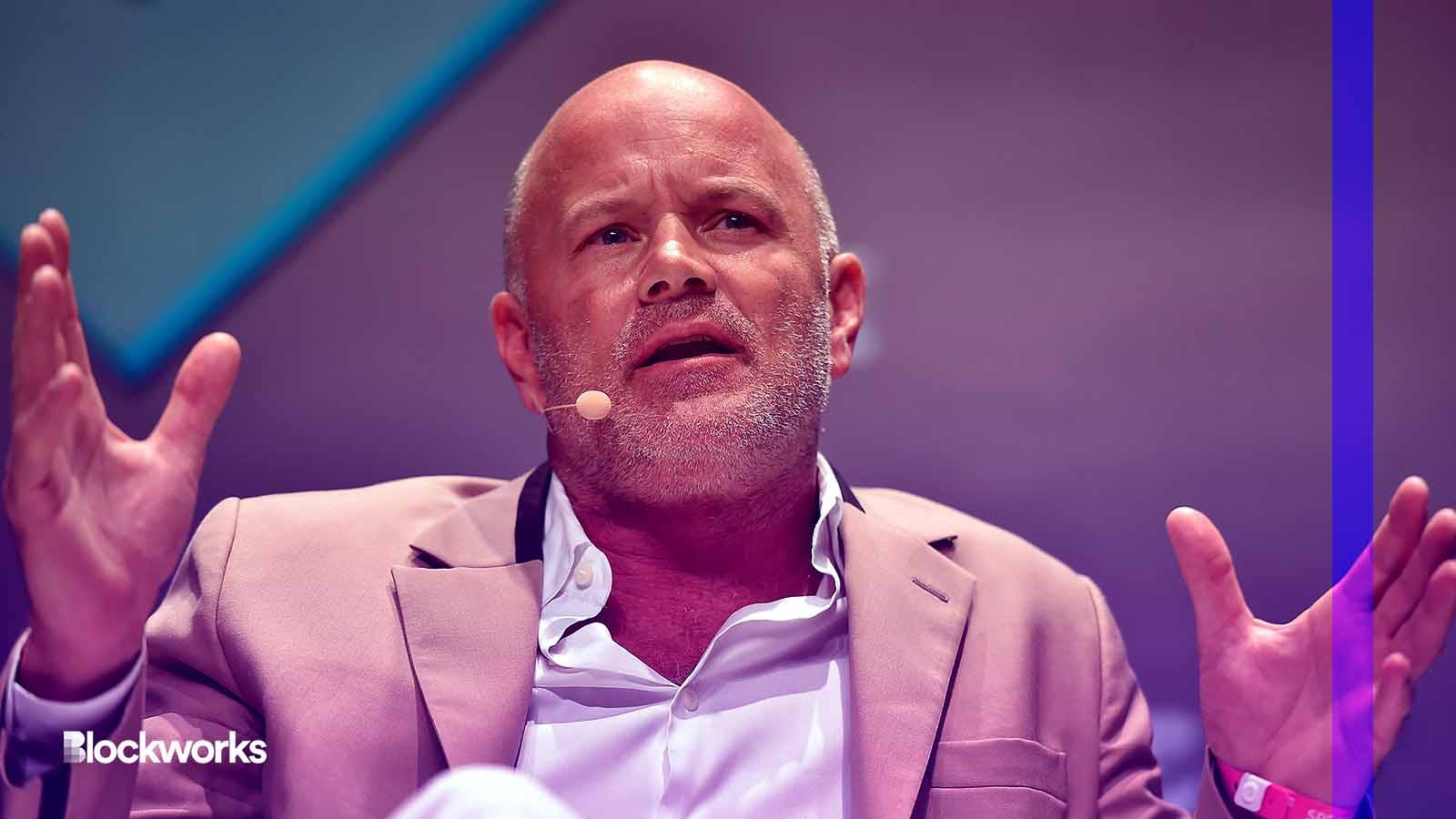Galaxy CEO: Crypto headwinds dissipating with bitcoin ETF plans, Ripple ruling
After FTX collapse stunted crypto institutional adoption, a bitcoin ETF would offer “a jolt of adrenaline,” Mike Novogratz says

Galaxy CEO Mike Novogratz | Seb Daly/ RISE via Sportsfile "Mike Novogratz" (CC license)
While the collapse of FTX and other industry challenges in 2022 caused many institutions to retreat from participating in crypto, Galaxy Digital CEO Mike Novogratz said a spot bitcoin ETF would bring many back.
The approval of such a fund — deemed more likely now by some in the industry after a flurry of second quarter filings — would signal the government’s backing of bitcoin, in a sense, the executive said during Galaxy’s second quarter earnings call on Tuesday.
It would also allow pension funds, asset managers and others to more easily allocate to the space and in potential large quantities, Novogratz added.
“Pre-Sam Bankman-Fried blow-up, lots and lots of institutions got to the starting line…and then they all backed away,” he said. “It certainly stunted the overall growth of the space, and this gives us kind of a jolt of adrenaline in the rear end, pushing us in the right direction.”
Galaxy partnered with asset management giant Invesco in 2021, listing the company as the sponsor of its proposed spot bitcoin ETF at the time — a product that, like all other similar proposals, never made it to market.
More recently, the Cboe BZX Exchange — on behalf of the two companies — filed for the Invesco Galaxy Bitcoin ETF in June after rival BlackRock revealed plans to launch such a fund.
Those products — as well as others by Ark Invest, Fidelity, WisdomTree, VanEck, Bitwise and others — are currently being reviewed by the US Securities and Exchange Commission.
Read more: Start your engines: Deadlines to watch for in the bitcoin ETF race
“We’re going to fight like cats and dogs to win market share there once it gets approved,” Novogratz said. “It’s a big deal because both our contact from the Invesco side and from the BlackRock side gets you to think that this is a question of when, not if, and that the outside window of this is probably six months.”
Galaxy also linked up with Germany-based fund goliath DWS in April to bring exchange-traded products (ETPs) to European investors. Firm executives noted on Tuesday’s call that the company intends to launch co-branded crypto products in the continent by the end of the year.
Ripple ruling “a big deal”
Novogratz also called the ruling by US district judge Analisa Torres in the SEC’s case against Ripple a significant development that could force the regulator and policymakers to act.
“It’s a big deal mostly because the SEC and Gary Gensler have been saying over and over, ‘Hey the rules are clear, just come in and register,’” Novogratz said. “A federal judge made it really clear the rules aren’t clear. They’re nothing close to clear.”
The court ruled that while Ripple’s institutional sales of XRP constituted an unregistered securities offering, programmatic sales of the token were not.
“I do think…this SEC loss to Ripple sent some shockwaves through the SEC that they need to respond to,” Novogratz said. “Their story of ‘everything is clear’ was undermined pretty dramatically.
“It wouldn’t surprise me if we saw moves their way to shore up their credentials saying we’re not an obstructionist,” he added. “I think that’s where the potential ETF approval comes in.”
The Galaxy CEO said he also expects the Ripple ruling could pressure Democrats to work more collaboratively with Republicans to get crypto legislation passed.
“We went from having a headwind to at least not a headwind,” Novogratz said. “I don’t say we have a tailwind yet.”
Q2 loss, US public listing?
Galaxy posted a net loss of $46 million in the second quarter, due primarily to lower net realized gains on digital assets and net unrealized losses on investments. The result was a reversal from net income of $134 million in the prior quarter.
Galaxy, which trades on the Toronto Stock Exchange, still wants to go public in the US as a Delaware-incorporated company and list on the Nasdaq.
Though Galaxy first revealed plans to do so in 2021, SEC review of that proposal is ongoing.
“It has been an unbelievably frustrating 24 months,” Novogratz said. “I kind of think the process has been un-American at its core, but I’m hoping we’re coming to the end of that.”
Get the news in your inbox. Explore Blockworks newsletters:
- The Breakdown: Decoding crypto and the markets. Daily.
- 0xResearch: Alpha in your inbox. Think like an analyst.






